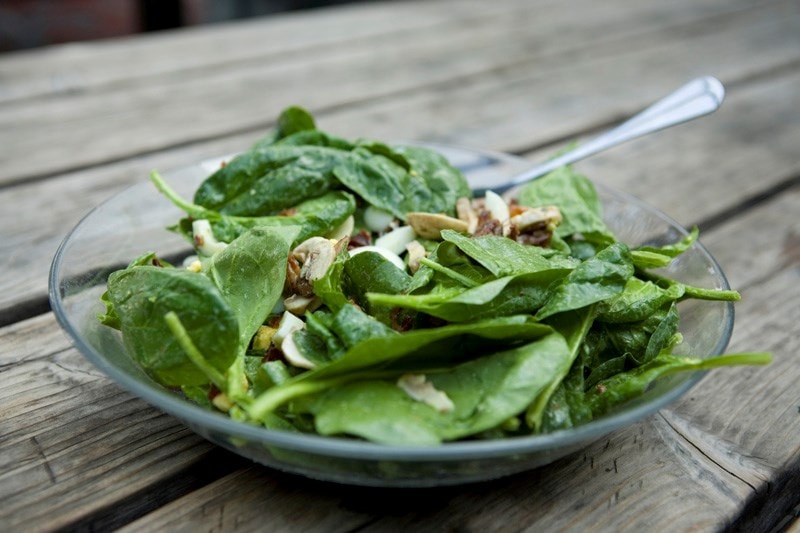Microbiome, Body Fat & Cholesterol
A new study1 just published in the journal Circulation Research has found a possible link between certain strains of gut bacteria and the participants' levels of triglycerides, HDL levels and even body mass index (BMI). The results may not yet be concrete enough for us to be using probiotics for heart disease prevention, but it’s certainly an exciting step towards a new angle on maintaining heart health and reducing body fat.

To explain this a little further, HDL is a ‘good’ cholesterol which helps maintain a healthy heart, whereas high triglyceride levels, which are another kind of ‘blood fat’, is associated with an increase in the likelihood of heart disease. Having a high BMI, or being overweight is again associated with an increase in the chances of developing heart disease.
So how can the levels of these be connected to the bacteria in our gut? There have already been studies linking gut bacteria with the processing of our bile salts which in turn is linked to the processing and excretion of excess cholesterol in our body. There is also increasing research to suggest that our microbiome is connected to our weight and even food cravings. Healthcare practitioners may wish to read Does the bacteria of our gut influence our body weight? It’s also becoming increasingly clear that different strains of gut bacteria have different roles to play. The problem of course is that one of the things modern life appears to harm in our body is the diversity of our gut microbiome. Alcohol, stress, antibiotics and even caesarean birth can affect this. It is thought that it is this diversity that maintains good health. You may wish to read more about a new film which highlights the importance of vaginal birth for babies’ microbiome.
This particular study involved analyzing the faecal samples from 893 adults ranging from 18-80. These samples were assessed as to how variable the gut microbial composition was in terms of microbial richness and diversity. They then assessed how microbial richness and diversity correlated with BMI and lipid levels. Overall the researchers found that after taking gender and age into account 34 types of bacteria were postively associated with people’s triglyceride and HDL levels and negatively correlated with their BMI. However, no correlation between the microbiome and LDL ('bad' cholesterol) levels and total cholesterol was found. Interestingly some studies have already suggested that gut bacteria may be involved in reducing cholesterol levels in our body2,3.

It was estimated in this study that the gut microbiome explained 4 to 6 percent of the variance in BMI, triglycerides and HDL across the study group. So although this is statistically quite small, because age, gender and genetics were taken into account this could still be counted as a 'strong correlation'. It was concluded the study 'provides insight into the microbiome’s role in regulating metabolic processes during the development of CVD.... and that the gut microbiome makes a significant contribution, beyond that of clinical risk factors and genetics, to the individual variance seen in BMI and to the blood levels of triglycerides and HDL'. It is however still a modest result and as Fu, who led the research said, “at the current stage, this field is still in its infancy”. More research needs to be done into the actual mechanism by which gut bacteria can affect these aspects of CVD. So the research doesn't call for probiotics to be used to prevent heart disease quite yet. However, enough research has indicated that looking after your gut will ultimately benefit your health in general. Of course taking your diet seriously and increasing your fruit and vegetable, fibre-rich grains, fish and other lean meats combined with exercise will benefit both heart health as well as your body-fat levels.
For further related reading, healthcare practitioners can see:
Do probiotics help curb inflammation and obesity?
L. Plantarum probiotic shown to help lower cholesterol
Saccharomyces boulardii tested to lower cholesterol
References
- Jingyaun Fu et al (2015) The Gut Microbiome Contributes to a Substantial Proportion of the Variation in Blood Lipids. Circulation Resarch. Published online 10 Sept 2015
- Djoussé L et al. (2003) Dietary linolenic acid and carotid atherosclerosis: the National Heart, Lung, and Blood Institute Family Heart Study. American Journal of Clinical Nutrition; 77: 819–25.
- Djoussé L et al. (2005) Dietary linolenic acid is inversely associated with calcified atherosclerotic plaque in the coronary arteries: the National Heart, Lung, and Blood Institute Family Heart Study. American Heart Association; 111: 2921-2926.
Popular Articles
View all Weight Management articles-
Weight Management13 Feb 2024
-
Weight Management10 Jan 2024


